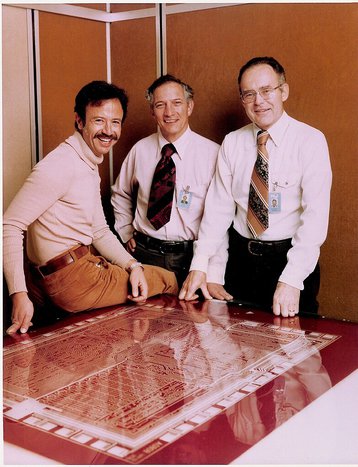Intel co-founder and seminal semiconductor figure Gordon Moore has passed away, aged 94.
Moore is best known for the eponymous 'Moore's law,' a 1965 prediction that processors would roughly double in transistor count every year, which he updated a decade later to be every two years. The prediction proved a self-fulfilling guide for the semiconductor industry, which has tried to maintain that pace - although has struggled in recent years as transistors hit against the limits of physics.
Back in 1956, Moore joined the co-inventor of the transistor William Shockley at Shockley Semiconductor Laboratory. But the first semiconductor company was plagued by challenges, with Nobel Prize in Physics-winner Shockley reportedly a poor manager, prone to aggressive outbursts, and convinced that only his vision could usher in the computing age.
Moore and seven other staffers quit, forming Fairchild Semiconductor with the backing of wealthy businessman Sherman Fairchild. Known as the 'traitorous eight,' the employees created a massively successful chip company.
But Sherman Fairchild exercised his right to purchase shares from all the cofounders in 1959, leaving Moore and colleague Bob Noyce again working at a company where they had no control.
The two left to create a new company, originally planning on calling it 'Moore-Noyce.' Realizing that it sounded too much like 'more noise,' they took the first letters from 'integrated electronics' and founded Intel in 1968 with Moore as CEO.
Three years later, the company launched the Intel 4004, the first commercially produced microprocessor, and the first Intel CPU. It revolutionized computing, and the world more broadly, ushering in an unprecedented period of growth at Intel.
The company maintained a dominant position in the market until the turn of the century, when competition, the growth of smartphones, and the emergence of third-party chip foundries chipped away at its market share.
Moore also began to step back, becoming chairman emeritus in 1997 and fully stepping down in 2006. Instead, he turned to philanthropic endeavors, establishing the Gordon and Betty Moore Foundation, which has donated more than $5.1 billion to charitable causes since its founding in 2000.
"I will remember Gordon as a brilliant scientist, a straight-talker, and an astute businessperson who sought to make the world better and always do the right thing," Andy Bryant, former chairman of Intel’s board of directors, said.
"It was a privilege to know him, and I am grateful that his legacy lives on in the culture of the company he helped to create."

